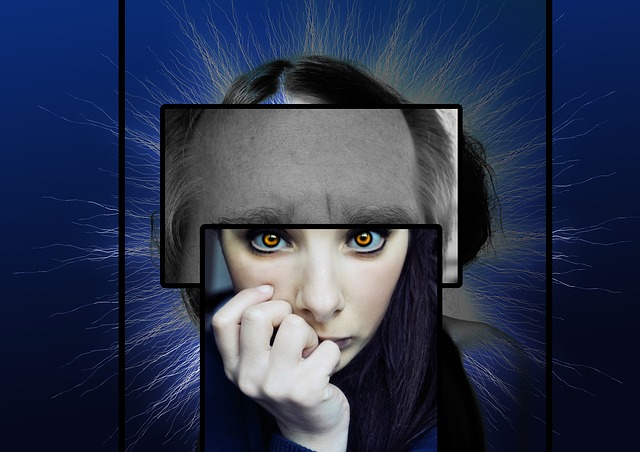
Table of Contents
The Science of Addiction Establishes A Connection With Co-occurring Disorders
Substance use disorder and mental health disorders stay in line with each other. When they occur together, each of them may affect the course of the other. This may happen irrespective of whether you have become addicted to using drugs or you had a mental health issue first.
If they are not treated, these co-occurring issues can lead to increased drug and alcohol use or exacerbation of mental health issues. Luckily, the American Society of Addiction Medicine states that treatments are available to handle these co-occurring conditions.
Read on to learn more about substance abuse and co-occurring disorders, particularly mental health issues:
What Are Mental Health Disorders According to the Diagnostic and Statistical Manual?
The Diagnostic and Statistical Manual of Mental Disorders is a handbook that is used by physicians in the USA and other countries. This handbook is used as an authoritative guide to diagnosing mental health issues. The DSM-IV Definition of Mental Disorder includes the following:
- A medically considerable psychological or behavioral pattern or syndrome that an individual faces
- It is connected with present distress like a disability or pain or with a considerably increased risk of disability, death, or a crucial loss of freedom.
- Mental health issues should not be just a culturally sanctioned or expected response to a specific event like the death of a loved one.
- A biological, psychological, or behavioral dysfunction in a person
- Neither conflicts nor deviant behavior like sexual, religious, or political conflicts that are basically between the society and the individual are classified as mental disorders. However, this rule will not apply if the conflict or deviance is a sign of dysfunction in the person suffering.
Factors that Contribute To Mental Health Issues
The Centers for Disease Control and Prevention states that some factors can contribute to mental health issues. They are:
- Issues related to chronic medical illnesses
- Feeling isolated or lonely
- Restricted social circle
- Addicted to drugs or other substances
- Adverse life experiences like witnessing violent events, trauma, or abuse
- Biological factors like brain chemistry and genetics
The mental health status of a person can change over time. This can happen based on his/her life situation. Also, this can happen due to environmental factors like family disruption, stress, or medical issues. For instance, a person, who is mentally healthy otherwise, experiences a high-stress load over a prolonged period. When this happens, this person will have a higher risk of developing a mental health issue.
Above all, when the ability to cope and the inner resources of the person worsen, he can experience worsened mental health.

What is Alcohol Addiction?
Alcohol addiction is the colloquial term for Alcohol Use Disorder. According to American Addiction Centers, alcohol addiction is a medical condition. It is characterized by the inability of a person to stop using alcohol despite health, occupational, and social issues caused by the addiction.
The compulsive patterns of drinking connected with Alcohol Use Disorder can contribute to dependence on alcohol. Here, the addicted person will need to continue drinking to feel normal and for normal functioning.
Symptoms of Addiction
Other signs that professionals look for when you seek help for addiction often include the following:
- You are drinking for longer periods or higher amounts than you intended to do
- You are not able to stop taking the drug despite your intention to do it.
- Spending a lot of time on drugs just to feel relaxed or
- Spending a lot of time recovering from the effects of using the drug
- Experiences strong urges or cravings to use cocaine, opioids, or other substances
- Not able to meet responsibilities at school, home, or work due to drug use
- You continue using the substance even after a troubled relationship due to this habit
- You are giving up or cutting back on activities that you loved a lot earlier just to meet your drug seeking intentions
- Engaging in physically dangerous activities like running machinery or driving after or during drug use
- Even after negative physical and mental health issues, you are continuing your drug misuse and addiction
- Feeling the need for more drugs or alcohol to achieve the desired effects
- Experiencing withdrawal symptoms when you try to stop using nicotine or alcohol
In case, you have experienced two or more of these signs of addiction within the past 12 months, you will need addiction treatment. The more symptoms you experience, the more severe the substance use disorder. It signals that there is an urgent need to look for treatment options.
What Are Co-occurring Disorders With Substance Use Disorder?
In the domain of addiction medicine, the term co-occurring disorder is used to describe an individual having both substance use and mental health issues. The problem with co-occurring disorders is that they are challenging and serious.
They present considerable challenges to your ability to function and your well-being. However, recovery is possible with ongoing aftercare and treatment.
According to the Journal of the American Medical Association, nearly 50% of people with severe mental health issues also struggle with some kind of substance use disorder. According to the studies conducted previously by this body, at least 37% of people, who had a substance dependence also had at least a single serious mental health issue.
In short, both of them go hand-in-hand. So, be it behavioral addiction or drug addiction, co-occurring disorders are common. They should be rightly spotted and addressed.
Common Co-Occurring Disorders with Drug Addiction
People with addiction usually have a greater chance of developing some mental health issues. They are:
- Attention-Deficit Hyperactivity Disorder
- Borderline Personality Disorder
- Psychotic Disorders
- Post-traumatic Stress Disorder
- Depression
- Bipolar Disorder
- Panic Disorder
- Generalized Anxiety Disorder
AUD and Associated Mental Health Issues
Even though any form of addiction can affect mental health, some common associations exist between mental health issues and alcohol use disorders. Some issues associated with AUD include:
- Antisocial personality disorder
- Anxiety disorder
- Bipolar disorder
- Major depression
According to a study, nearly 37% of AUD had anxiety issues. Also, nearly 28% had a major depressive disorder and 29% had a mood disorder.
In short, the basis of addiction can be a compromised mental health in some people. In the same way, addiction can also lead to mental health issues in some people. So, cooccurring disorders are common in people with untreated addiction. So, when diagnosing addiction, the mental health of a person should be evaluated to address both.
FAQs
Yes, the probability of developing a mental disorder is higher among the addicted population. This is why it is recommended that it is better to take corrective actions before developing an addiction. Otherwise, a treatment program should be sought before drug use, and addiction gives way to a mental disorder.
Yes, addiction is a serious condition that needs a treatment plan. However, it is a treatable mental disorder. The reason is that it affects a person's behavior and brain. A person with possible addiction will face issues with controlling his desire to use the substance.
Addiction, unfortunately, is pointed out by experts as the most severe form of Substance Use Disorder. However, with a supportive environment, the right medication, and some therapies, any person can get out of dependence before the addiction begins to affect his/her mental well-being further.
Yes, with different services available to help, you can get out of your alcohol and drug usage successfully.










